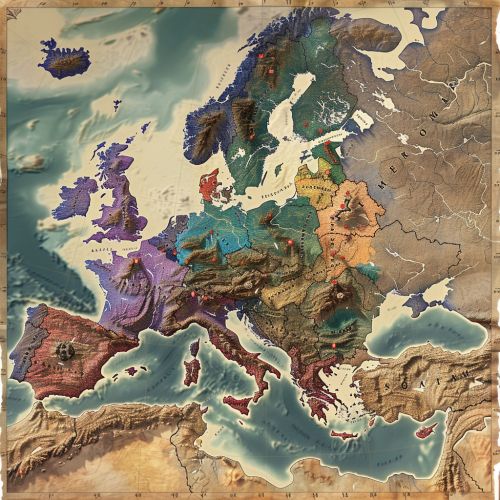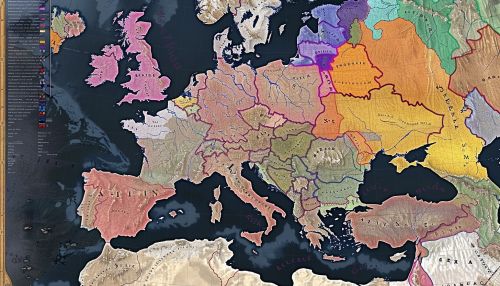Spread of Christianity in Europe
Introduction
The spread of Christianity in Europe is a historical process that began in the 1st century AD and continues to the present day. The spread of this Abrahamic religion has had profound impacts on the cultural, political, and social landscapes of the continent. This article will delve into the details of this process, examining the factors that contributed to the spread of Christianity, the resistance it faced, and the ways in which it transformed European societies.


Early Spread (1st to 4th Century)
Christianity emerged in the 1st century AD in the context of the Roman Empire. The religion's early spread was largely due to the efforts of the Apostles and other early Christian missionaries. The Apostle Paul, in particular, played a significant role in spreading Christianity to the Gentiles (non-Jews) throughout the Roman Empire. His missionary journeys took him to key cities such as Ephesus, Corinth, and Rome, where he established Christian communities.
Legalization and State Religion (4th to 5th Century)
The 4th century marked a turning point for Christianity in Europe with the conversion of Constantine the Great. In 313 AD, the Edict of Milan was issued, granting religious freedom to all citizens of the Roman Empire, including Christians. This marked the end of the period of persecution and the beginning of Christianity's rise to prominence within the empire. In 380 AD, under Emperor Theodosius I, Christianity became the state religion of the Roman Empire.
Spread to the Barbarian Kingdoms (5th to 8th Century)
With the fall of the Western Roman Empire in the 5th century, Europe entered a period often referred to as the Dark Ages. During this time, the spread of Christianity continued, particularly among the Germanic tribes that had established kingdoms in the former territories of the Western Roman Empire. The conversion of the Franks, led by King Clovis I, in the late 5th century marked a significant milestone in the spread of Christianity in Western Europe.
Missionary Activity (8th to 11th Century)
The 8th to 11th centuries saw an intensification of missionary activity in Europe. The Anglo-Saxon mission, led by figures such as Saint Boniface, was particularly successful in spreading Christianity among the Germanic tribes of Central Europe. Meanwhile, the Christianization of Scandinavia saw the conversion of the Viking peoples of Northern Europe.
Eastern Orthodoxy and the Great Schism (11th to 15th Century)
In the East, Christianity took a different path. The Eastern Orthodox Church, centered in Constantinople, developed its own distinct traditions and practices. The differences between Eastern Orthodoxy and Western Christianity culminated in the East–West Schism of 1054, which formally divided the Christian world into the Roman Catholic Church in the West and the Eastern Orthodox Church in the East.
Reformation and Counter-Reformation (16th to 17th Century)
The 16th century brought significant changes to Christianity in Europe with the onset of the Protestant Reformation. Initiated by figures like Martin Luther and John Calvin, the Reformation led to the establishment of Protestant churches that rejected the authority of the Pope and the Roman Catholic Church. In response, the Catholic Church initiated the Counter-Reformation to address the criticisms of the Protestants and reaffirm its doctrines and practices.
Modern Era (18th Century to Present)
In the modern era, Christianity has continued to evolve and adapt to the changing cultural and social landscapes of Europe. The Enlightenment of the 18th century brought new challenges to Christianity, as the rise of secularism and the emphasis on reason and science led many to question traditional religious beliefs. Despite these challenges, Christianity remains a major religious force in Europe, with a significant impact on the continent's culture, politics, and society.
